April 23 stands as one of history’s most eventful days, witnessing the rise and fall of empires, groundbreaking discoveries, and moments that shaped our modern world across centuries of human achievement.
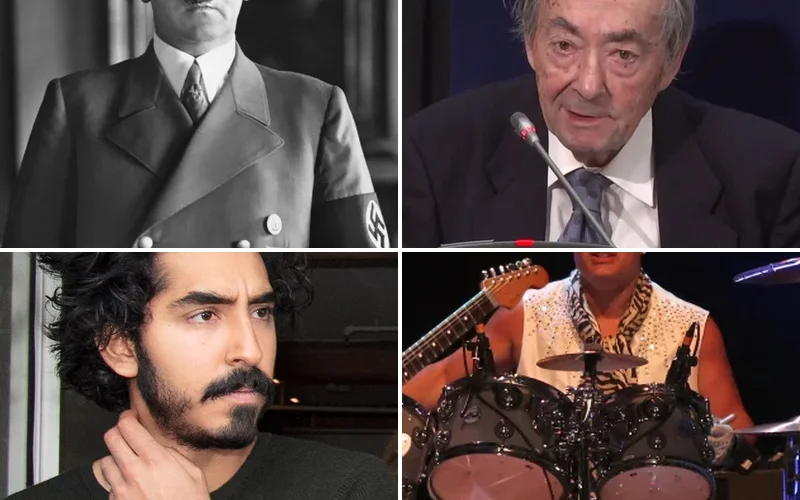
Politics and Government Events on April 23
1920 – Grand National Assembly of Turkey Founded
The Grand National Assembly of Turkey established itself in Ankara, marking a pivotal moment in Turkish independence. The assembly boldly denounced Sultan Mehmed VI’s government and began preparing a temporary constitution.
This defiant act laid the foundation for modern Turkey’s democratic institutions. The assembly’s formation represented the Turkish people’s determination to forge their own political destiny after the Ottoman Empire’s collapse.
1935 – Polish Constitution Adopted
Poland enacted its new constitution, fundamentally reshaping the nation’s governmental structure. The document established expanded presidential powers and centralized authority during a period of European political instability.
The constitution reflected Poland’s attempt to strengthen national unity amid growing international tensions. This legal framework would govern the country until World War II dramatically altered Poland’s political landscape.
1946 – Manuel Roxas Elected Philippine President
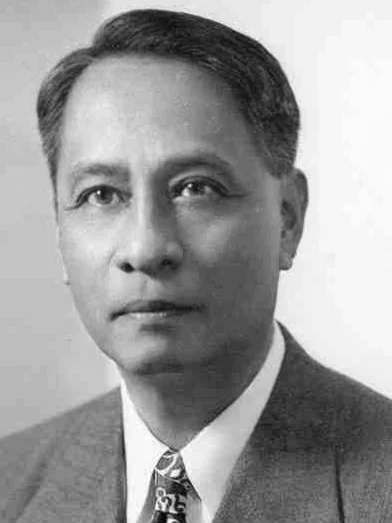
Manuel Roxas won election as the final President of the Commonwealth of the Philippines. His victory came as the nation prepared for full independence from American colonial rule.
Roxas faced the enormous challenge of rebuilding a war-torn archipelago while transitioning to complete sovereignty. His presidency marked the end of the Commonwealth era and the beginning of the modern Philippine republic.
1951 – American Journalist Arrested in Czechoslovakia
Communist authorities in Czechoslovakia arrested American journalist William N. Oatis on espionage charges. The arrest heightened Cold War tensions between the United States and Soviet-aligned Eastern European nations.
Oatis’s detention became a significant diplomatic incident, reflecting the broader ideological struggle of the era. His case demonstrated how journalists became pawns in the geopolitical chess game between superpowers.
1990 – Namibia Joins United Nations
Namibia became the 160th member of the United Nations and the 50th member of the Commonwealth of Nations. This membership marked the nation’s full integration into the international community after gaining independence.
The country’s admission represented the successful conclusion of decades-long struggle against South African apartheid rule. Namibia’s UN membership symbolized Africa’s continuing decolonization process and democratic progress.
1993 – Eritrean Independence Referendum
Eritreans voted overwhelmingly for independence from Ethiopia in a United Nations-monitored referendum. The democratic process provided international legitimacy to Eritrea’s decades-long independence movement.
The referendum’s success marked the end of Africa’s longest-running civil war. Eritrea’s peaceful transition to independence demonstrated the power of international mediation in resolving complex territorial disputes.
Military and Naval History on April 23
1918 – Zeebrugge Raid Launched
British Royal Navy forces launched a daring raid attempting to neutralize the Belgian port of Bruges-Zeebrugge. The operation aimed to prevent German U-boats from using the strategic harbor during World War I.
The raid demonstrated innovative naval tactics and extraordinary courage under fire. Although only partially successful, the operation became legendary for its audacious planning and heroic execution by British naval forces.
1941 – Greek Government Evacuates Athens
The Greek government and King George II evacuated Athens as German Wehrmacht forces advanced on the capital. This retreat marked the collapse of Greek resistance after months of fierce fighting.
The evacuation represented one of the final acts of organized Greek resistance during the Axis invasion. The government’s departure signaled the beginning of a brutal occupation that would devastate Greece throughout the war.
1942 – Baedeker Blitz Strikes English Cities
German bombers attacked Exeter, Bath, and York in retaliation for British raids on Lübeck. These strikes formed part of the Baedeker Blitz, targeting England’s historic and cultural centers.
The raids demonstrated Nazi Germany’s strategy of psychological warfare through cultural destruction. The attacks on these ancient cities marked a deliberate escalation in targeting civilian heritage sites.
1945 – Göring’s Treasonous Telegram

Hermann Göring sent Adolf Hitler a telegram requesting permission to assume leadership of Nazi Germany. Martin Bormann and Joseph Goebbels convinced Hitler that Göring’s message constituted treason.
This incident revealed the deep fractures within Nazi leadership as Germany faced imminent defeat. The telegram controversy eliminated Göring from succession, fundamentally altering the Third Reich’s final days.
1949 – People’s Liberation Army Navy Established
The Chinese Communist Party established the People’s Liberation Army Navy during the final stages of the civil war. This naval force would become crucial to Communist victory and China’s maritime defense.
The navy’s formation represented China’s commitment to becoming a comprehensive military power. This maritime capability would prove essential for the Communist forces’ planned invasion of Taiwan and coastal operations.
1961 – Algiers Putsch Begins
French generals launched a military coup in Algiers, attempting to overthrow President Charles de Gaulle’s government. The putsch reflected military opposition to de Gaulle’s policies regarding Algerian independence.
The failed coup attempt demonstrated the deep divisions within French society over colonial policy. The putsch’s collapse strengthened de Gaulle’s position and accelerated Algeria’s path to independence.
Science and Discovery Milestones on April 23
1967 – Soyuz 1 Launched
The Soviet space program launched Soyuz 1, carrying cosmonaut Colonel Vladimir Komarov into Earth orbit. This mission marked a significant milestone in the Soviet Union’s ambitious space exploration program.
The spacecraft represented cutting-edge Soviet aerospace technology and engineering capabilities. Komarov’s flight demonstrated the USSR’s continuing leadership in the international space race during the height of the Cold War.
2005 – First YouTube Video Published
Co-founder Jawed Karim published the first YouTube video, titled “Me at the zoo.” This simple 19-second clip launched what would become the world’s largest video-sharing platform.
The video’s publication marked the beginning of the digital revolution in media consumption and content creation. YouTube’s emergence fundamentally transformed how people share information, entertainment, and educational content globally.
1901 – E.B. Ford, Geneticist
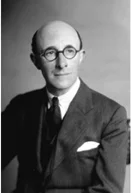
English biologist and geneticist E.B. Ford entered the world, destined to revolutionize ecological genetics. His pioneering research would establish fundamental principles of evolutionary biology.
Ford’s work bridged laboratory genetics with field ecology, creating entirely new scientific disciplines. His contributions to understanding natural selection and population genetics transformed modern biological science.
1933 – Annie Easley, Computer Scientist

American computer scientist, mathematician, and engineer Annie Easley was born in Birmingham, Alabama. Her groundbreaking work at NASA would advance rocket fuel development and energy storage systems.
Easley’s contributions to space exploration and alternative energy research broke significant barriers for women and African Americans in STEM fields. Her legacy continues inspiring diverse participation in scientific careers.
Cultural and Arts Events on April 23
1909 – Lisbon Earthquake
A devastating magnitude 6.0 earthquake struck near Lisbon, Portugal, killing at least 60 people and injuring 75 others. The disaster caused widespread destruction throughout the region’s historic architecture.
The earthquake demonstrated the ongoing seismic activity affecting the Iberian Peninsula. Recovery efforts revealed the resilience of Portuguese communities and their determination to rebuild their cultural heritage.
1940 – Rhythm Club Fire Tragedy

A catastrophic fire at the Rhythm Club dance hall in Natchez, Mississippi, killed 198 people. The tragedy highlighted dangerous building conditions and inadequate fire safety measures in entertainment venues.
The disaster led to significant improvements in fire safety codes and building regulations nationwide. The tragedy’s impact extended beyond immediate casualties, transforming public safety standards for entertainment facilities.
1968 – Columbia University Protests
Student protesters at Columbia University in New York City occupied administration buildings and shut down the university. The demonstrations reflected widespread opposition to the Vietnam War and institutional policies.
The protests became a defining moment of 1960s student activism and anti-war sentiment. Columbia’s shutdown inspired similar movements across American universities, fundamentally changing higher education’s relationship with social movements.
1902 – Halldór Laxness, Nobel Laureate
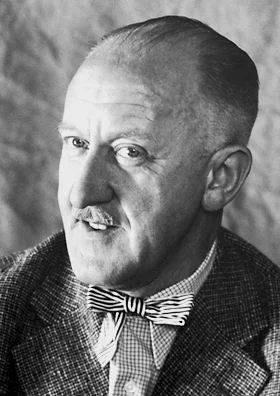
Icelandic author and poet Halldór Laxness was born, destined to become his nation’s most celebrated writer. His literary works would capture the essence of Icelandic culture and history.
Laxness would later receive the Nobel Prize in Literature for his profound contributions to world literature. His novels masterfully portrayed Iceland’s transition from traditional society to modernity.
1936 – Roy Orbison, Musical Legend

American singer-songwriter Roy Orbison entered the world in Vernon, Texas. His distinctive voice and emotional ballads would revolutionize popular music and influence countless artists.
Orbison’s operatic vocal style and dark, romantic songs created a unique sound that transcended traditional rock and roll. His musical legacy continues inspiring performers across multiple generations and genres.
Religious and Social Events on April 23
1919 – Estonian Constituent Assembly
Estonia held its Constituent Assembly elections, marking the birth of the Estonian Parliament, the Riigikogu. This democratic milestone established the foundation for Estonian parliamentary democracy.
The assembly’s formation represented Estonia’s successful transition from centuries of foreign rule to independent statehood. The parliament’s establishment demonstrated the Estonian people’s commitment to democratic governance and national self-determination.
1971 – Jathibhanga Massacre
Pakistani Army forces and Razakars massacred approximately 3,000 Hindu emigrants in the Jathibhanga area of East Pakistan. This atrocity occurred during the Bangladesh Liberation War’s brutal early phase.
The massacre exemplified the systematic violence targeting Bangladesh’s civilian population during the independence struggle. This tragic event contributed to international awareness of the humanitarian crisis in East Pakistan.
1979 – Blair Peach Killed

British activist Blair Peach suffered fatal injuries during an Anti-Nazi League demonstration in Southall, London. The incident occurred during protests against a National Front election meeting.
Peach’s death became a rallying point for anti-racism movements throughout Britain. The controversy surrounding his death highlighted tensions between police and minority communities during this turbulent period.
1993 – Sri Lankan Political Assassination
Sri Lankan politician Lalith Athulathmudali was assassinated while addressing a political gathering. The killing occurred approximately four weeks before crucial Provincial Council elections.
The assassination reflected the dangerous political climate gripping Sri Lanka during its civil war period. Athulathmudali’s death demonstrated how political violence threatened democratic institutions and electoral processes.
Business and Economic Events on April 23
1985 – New Coke Launched
Coca-Cola changed its formula and released New Coke to overwhelming negative consumer response. The controversial decision represented one of marketing history’s most famous product failures.
The company retreated from the new formula in less than three months, returning to the original recipe. This marketing disaster paradoxically strengthened consumer loyalty to the traditional Coca-Cola brand.
1920 – Eric Grant Yarrow, Businessman
English businessman Eric Grant Yarrow, 3rd Baronet, was born into a prominent shipbuilding family. His leadership would guide the Yarrow Shipbuilders through decades of maritime industry challenges.
Yarrow’s business acumen helped maintain British shipbuilding competitiveness during the post-war era. His contributions to naval architecture and marine engineering supported Britain’s maritime industrial heritage.
1953 – Narada Michael Walden, Producer

American singer-songwriter, drummer, and producer Narada Michael Walden entered the world in Kalamazoo, Michigan. His musical talents would shape the sound of contemporary pop and R&B.
Walden’s production work with major artists transformed popular music throughout the 1980s and beyond. His innovative studio techniques and musical arrangements influenced countless recordings and artists.
Transportation and Infrastructure on April 23
1966 – Aeroflot Flight 2723 Crashes

Aeroflot Flight 2723 crashed into the Caspian Sea off the Absheron Peninsula, killing all 33 people aboard. The disaster highlighted ongoing aviation safety challenges in the Soviet Union.
The crash prompted investigations into aircraft maintenance procedures and pilot training standards. This tragedy contributed to gradual improvements in Soviet aviation safety protocols and emergency response procedures.
1979 – SAETA Flight 011 Disaster

SAETA Flight 011 crashed in Pastaza Province, Ecuador, killing all 57 people on board. The wreckage remained undiscovered until 1984, highlighting challenges in aviation search and rescue operations.
The delayed discovery revealed the difficulties of locating aircraft in remote mountainous terrain. This incident led to improvements in flight tracking systems and emergency locator beacon technology.
1999 – NATO Bombs Serbian Television
NATO forces bombed Radio Television of Serbia headquarters during their aerial campaign against Yugoslavia. The attack targeted media infrastructure as part of the broader military strategy.
The bombing raised significant questions about targeting civilian media facilities during wartime. The incident sparked international debates about the ethics of attacking broadcast infrastructure during armed conflicts.
2018 – Toronto Vehicle Attack

A vehicle-ramming attack in Toronto killed 11 people and injured 15 others. Twenty-five-year-old suspect Alek Minassian was arrested following the deliberate assault on pedestrians.
The attack shocked Canada and highlighted the threat of vehicle-based terrorism in urban areas. The incident led to enhanced security measures and increased awareness of radicalization patterns among young men.
Sports and Recreation on April 23
1927 – Cardiff City Wins FA Cup
Cardiff City defeated Arsenal in the FA Cup Final, becoming the only team based outside England to win the prestigious tournament. This historic victory marked Welsh football’s greatest triumph.
The Welsh club’s success demonstrated the competitive strength of football beyond England’s borders. Cardiff’s victory remains unique in FA Cup history and a source of enduring national pride.
1921 – Warren Spahn, Baseball Legend

American baseball player and coach Warren Spahn was born in Buffalo, New York. His exceptional pitching career would establish him as one of baseball’s greatest left-handed pitchers.
Spahn’s remarkable longevity and consistency made him a Hall of Fame legend. His 363 career wins and masterful control influenced generations of pitchers and baseball strategy.
1943 – Tony Esposito, Hockey Star

Canadian-American ice hockey player, coach, and manager Tony Esposito entered the world in Sault Ste. Marie, Ontario. His goaltending innovations would revolutionize professional hockey.
Esposito’s butterfly style and competitive spirit earned him Hockey Hall of Fame recognition. His techniques influenced modern goaltending and helped establish the Chicago Blackhawks as a dominant franchise.
1977 – John Cena, Wrestling Icon

American professional wrestler and actor John Cena was born in West Newbury, Massachusetts. His charismatic personality and athletic ability would make him WWE’s most recognizable star.
Cena’s “Never Give Up” philosophy and charitable work extended his influence beyond wrestling entertainment. His crossover success in film and television demonstrated the mainstream appeal of sports entertainment.
Notable Births on April 23
1928 – Shirley Temple, Child Star

American actress, singer, dancer, and diplomat Shirley Temple was born in Santa Monica, California. Her childhood performances brought joy to Depression-era audiences worldwide.
Temple’s later diplomatic career included serving as U.S. Ambassador to Ghana and Czechoslovakia. Her transformation from child star to respected diplomat exemplified successful career reinvention.
1929 – George Steiner, Philosopher
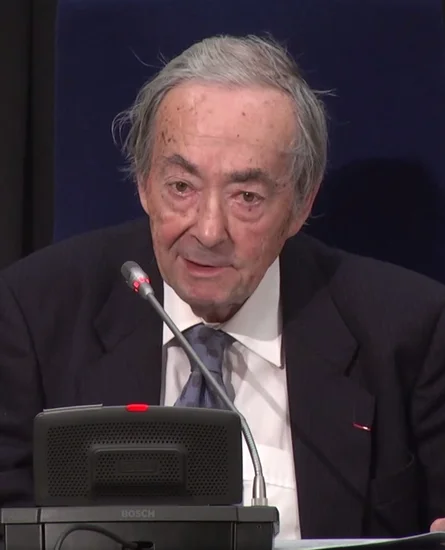
French-American philosopher, author, and critic George Steiner entered the world in Neuilly-sur-Seine, France. His intellectual contributions would span literature, philosophy, and cultural criticism.
Steiner’s multilingual scholarship and penetrating analyses influenced literary theory and comparative literature. His work bridged European and American intellectual traditions with remarkable depth and insight.
1954 – Michael Moore, Filmmaker

American director, producer, and activist Michael Moore was born in Flint, Michigan. His documentary films would challenge conventional political narratives and corporate power structures.
Moore’s provocative filmmaking style and social commentary sparked national debates about economic inequality and political accountability. His work demonstrated documentary film’s power to influence public discourse.
1963 – Dev Patel, Actor

English actor Dev Patel was born in Harrow, London, to Indian immigrant parents. His breakthrough performances would highlight diverse representation in international cinema.
Patel’s roles in acclaimed films demonstrated his versatility and dramatic range. His success opened doors for South Asian actors in Hollywood and British film industries.
1995 – Gigi Hadid, Supermodel

American fashion model and television personality Gigi Hadid was born in Los Angeles, California. Her modeling career would redefine contemporary fashion and social media influence.
Hadid’s international success and business ventures transformed modern modeling from traditional runway work to multimedia brand building. Her influence extends across fashion, social media, and cultural trends.
Notable Deaths on April 23
1915 – Rupert Brooke, War Poet
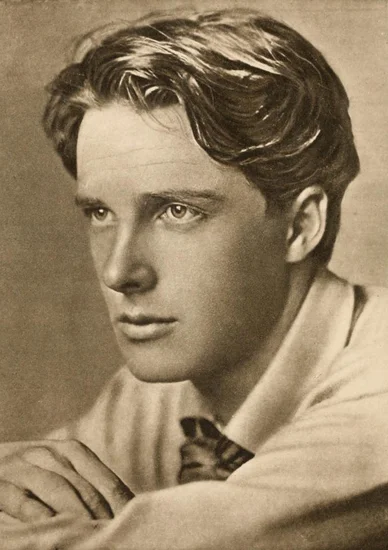
English poet Rupert Brooke died at age 27, becoming one of World War I’s most celebrated literary casualties. His patriotic verse captured the early war’s romantic idealism.
Brooke’s poems, particularly “The Soldier,” embodied the noble sacrifice narrative that defined the war’s initial phase. His death symbolized the lost generation of talented young men.
1992 – Satyajit Ray, Filmmaker

Indian director, producer, and screenwriter Satyajit Ray passed away, leaving behind cinema’s most acclaimed body of work. His films brought Indian culture to international audiences.
Ray’s masterful storytelling and visual artistry earned him numerous international awards, including an Honorary Academy Award. His influence on world cinema continues inspiring filmmakers globally.
1993 – Cesar Chavez, Labor Leader

American activist and co-founder of the United Farm Workers Cesar Chavez died, ending a lifetime of fighting for agricultural workers’ rights. His nonviolent approach achieved significant labor reforms.
Chavez’s dedication to social justice and worker dignity transformed American labor relations. His legacy continues inspiring civil rights movements and labor organizing efforts worldwide.
1995 – Howard Cosell, Sports Broadcaster
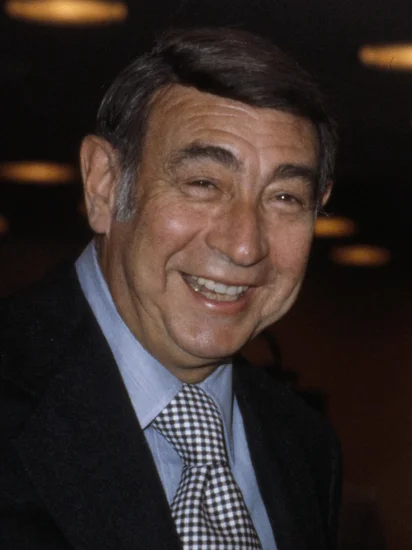
American lawyer and journalist Howard Cosell passed away, concluding a revolutionary broadcasting career. His provocative commentary style transformed sports journalism and television coverage.
Cosell’s willingness to address controversial topics and challenge athletic establishments changed how sports were covered. His influence on broadcast journalism extended far beyond sports reporting.
2007 – Boris Yeltsin, Russian President
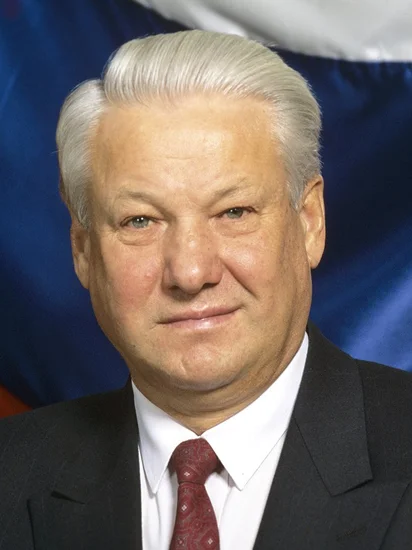
Russian politician and first President of Russia Boris Yeltsin died, ending a pivotal chapter in Russian history. His leadership during the Soviet Union’s collapse shaped modern Russia’s foundation.
Yeltsin’s democratic reforms and market economic policies fundamentally transformed Russian society. His complex legacy includes both democratic progress and economic turbulence during the transition period.
Holidays and Observances on April 23
World Book Day
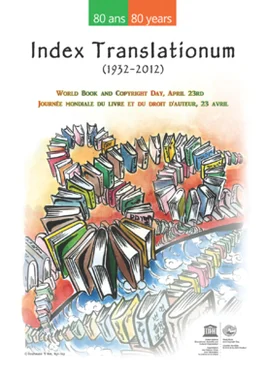
World Book Day celebrates literature, reading, and the fundamental importance of books in human culture. UNESCO established this observance to promote literacy and encourage reading habits worldwide.
The day highlights authors’ contributions to cultural development and knowledge preservation. Educational institutions and libraries organize special events to foster appreciation for written works and storytelling traditions.
Saint George’s Day

Saint George’s Day honors the patron saint of England and several other nations. The observance celebrates courage, chivalry, and the legendary dragon-slaying saint’s enduring cultural significance.
Traditional celebrations include parades, cultural events, and displays of national pride. The day connects modern communities with medieval traditions and shared cultural heritage.
UN English Language Day
The United Nations celebrates English Language Day to promote multilingualism and cultural diversity. The observance recognizes English’s role as a global lingua franca and literary language.
The day encourages appreciation for English literature, from Shakespeare to contemporary authors. Educational programs highlight the language’s evolution and its impact on international communication.
National Sovereignty and Children’s Day

Turkey and Northern Cyprus observe National Sovereignty and Children’s Day, combining democratic principles with youth empowerment. The holiday celebrates both national independence and future generations’ importance.
The dual celebration reflects Mustafa Kemal Atatürk’s vision of democratic governance and educational progress. Children participate in special ceremonies and cultural activities throughout both nations.
